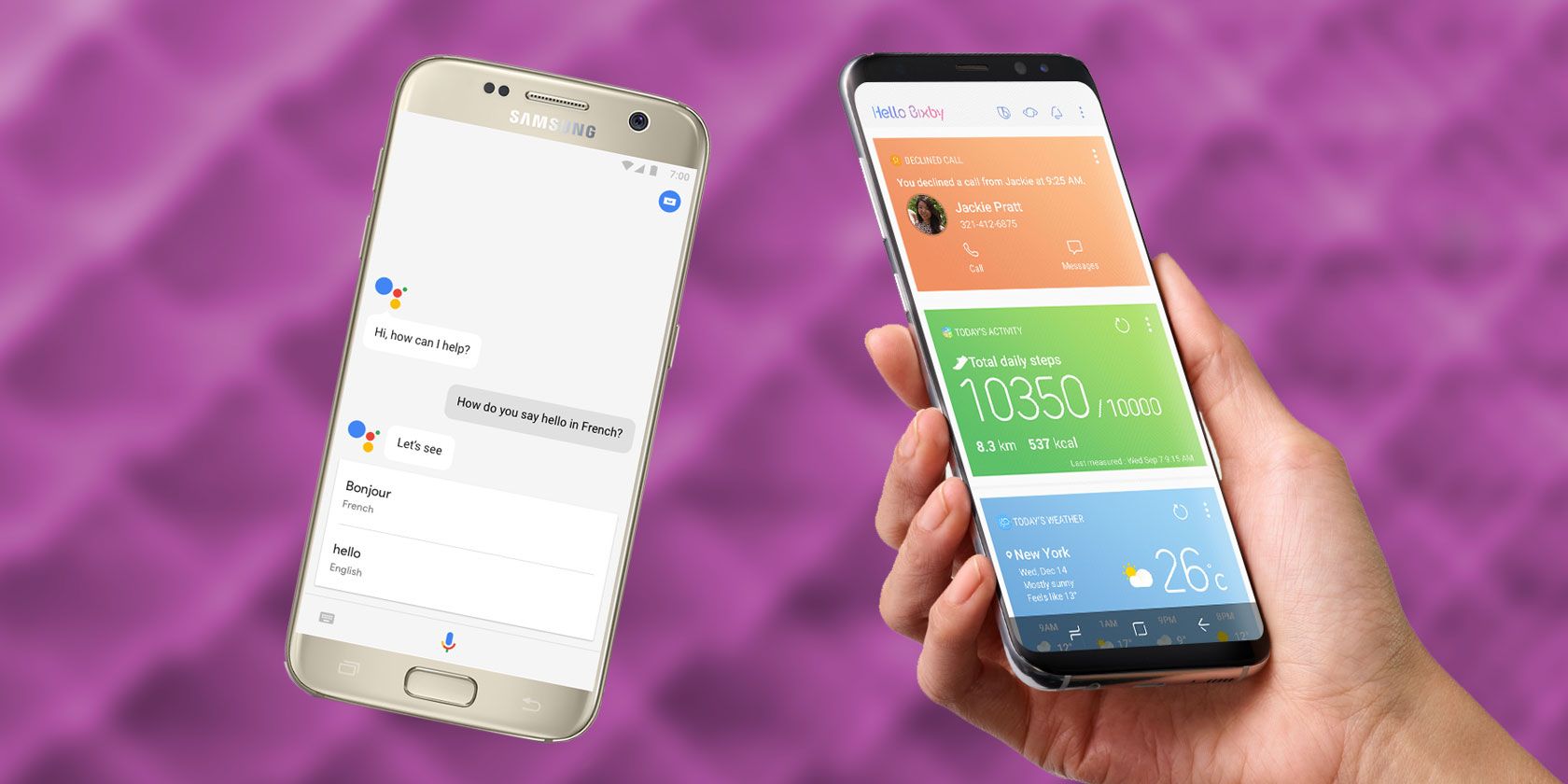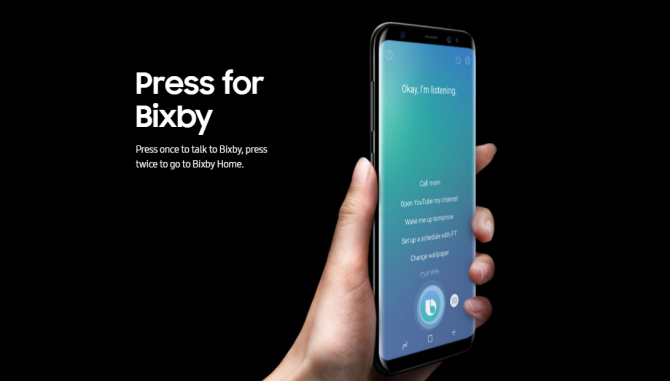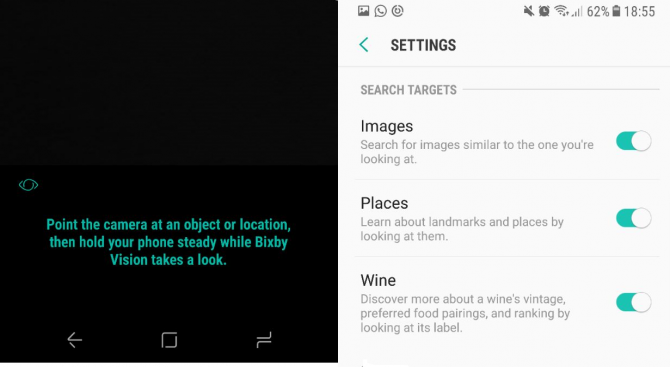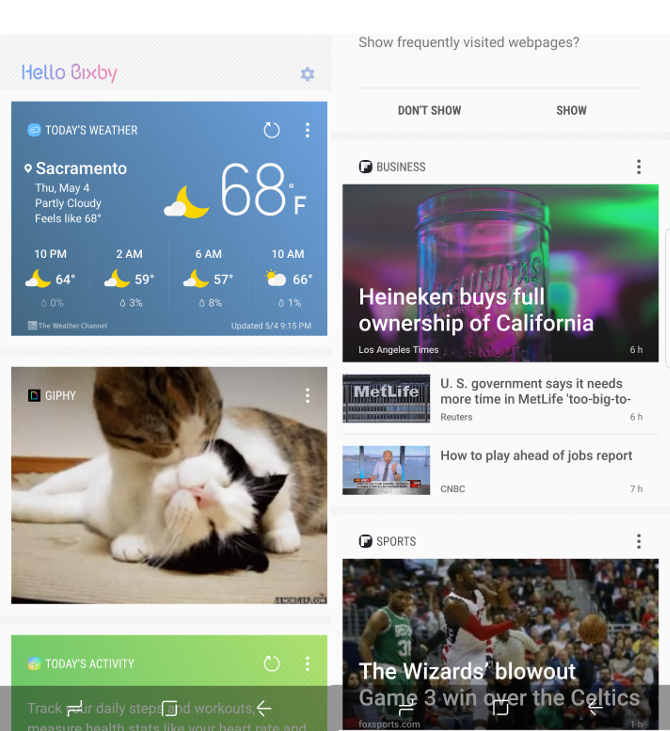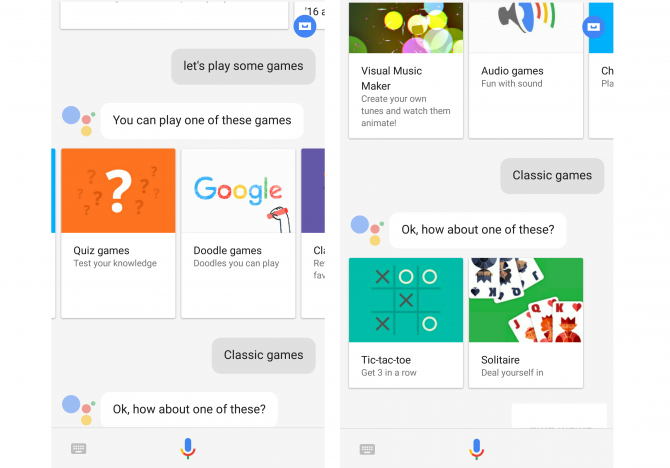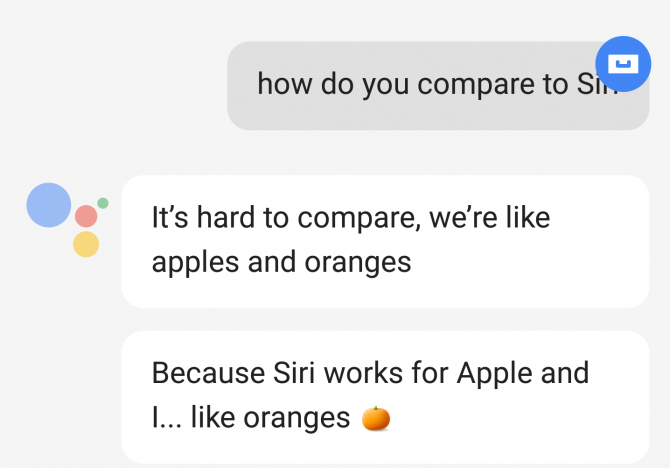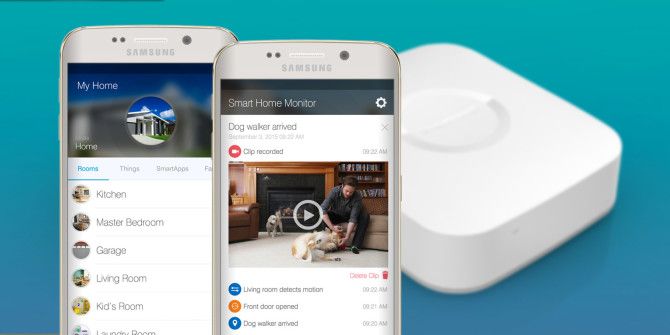Samsung introduced Bixby earlier this year -- and with the dedication of a whole button to the voice-controlled assistant, fans had high hopes. It's been over two months since the Samsung Galaxy S8's release, and Bixby is still trying to find its place.
So, what can Bixby do and how does it compare to its main Android competitor, Google Assistant?
Bixby Functionality
Samsung announced its new artificial intelligence assistant to much fanfare at their #UnboxYourPhone reveal of their latest flagship devices. The company promised an intelligent assistant that would simplify the internet of Things -- along with a special Bixby Vision feature.
"Fundamentally different from other voice agents or assistants in the market, Bixby offers a deeper experience," Samsung said in a statement after the announcement.
The AI is supposed to be different through its ability to interact with a multitude of apps, its context awareness, and its tolerance for deviations from normal commands.
The abilities of the AI at launch included:
- Customized news alerts.
- Weather updates.
- Bixby Vision.
- Activity tracking.
- Specific text commands.
Check out all the ways to use Bixby on your phone.
Bixby Vision
The Bixby Vision functionality was one of the most promising features of the assistant. It could recognize an object in real life when you take a picture, and then search online for similar products.
However when people were able to use the function, it served little practical use. The image recognition still uses broad categories. Taking a photo of a specific product, such as your Fossil mechanical watch for example, won't bring up variations of the same design or brand. You will simply get a list of watches in general.
This doesn't help you if you're looking to identify a specific product. If you're looking for alternatives, the listings are so broad that you'd be better off just searching for yourself.
A more useful feature is the ability to recognize landmarks -- but again, these are things you probably already know. It won't necessarily identify a lesser-known building for you.
So Bixby Vision turned out to be little more than a gimmick with possible potential.
Bixby Without Voice
But what about the rest of Bixby? The AI seemed to offer an alternative to Google Assistant and Siri. It even had a launch date that would see it arrive in some territories before Google Assistant's full roll-out to older Android devices.
But what many ended up with was a product that was woefully lacking. My own experience of Bixby while reviewing the phone was "Oh, cool," with the novelty wearing off within minutes. Nothing jumped out as a real reason to opt for it over Google Assistant, except that Bixby was on the S8 before Assistant was rolled out in South Africa.
The Bixby home screen amounted to a more minimalistic Google Now interface, but it didn't offer anything else I hadn't already been accustomed to.
Most of the potential was with voice commands, but Samsung had bad news on that front.
Bixby's language support would initially begin with Korean, and later expand to English. After a two-month wait, U.S. users who signed up for the beta got their first peek at Bixby Voice at the end of June -- but the rest of the U.S., and English speakers outside the region, will have to wait longer still.
This is great for people with beta access in the U.S., but for anyone outside of America or South Korea, the vast majority of the AI's best functionality is still yet to arrive.
Bixby Voice
The biggest defining aspect of Bixby Voice, when compared to Google Assistant, is the increased specificity in the voice commands. Rather than simply launching your camera, you can command the assistant to open your camera in panorama mode. You can even set a photo timer.
Some other commands include opening settings and making the display brighter.
This increased control through voice command is one of the AI's most promising aspects. It could even outperform Google Assistant, which still has more generalized commands. However, there's theory, and then there's execution. With Bixby still in beta, some are noticing sluggish performance and the inability to answer questions outside of commands.
Samsung might hesitate to compare itself directly to Google Assistant, with them poising Bixby as a complementary app rather than a competitor. But with the sheer amount of emphasis on the AI through its own dedicated button, the company is definitely pushing you to use Bixby.
Google Assistant
Google Assistant has definitely had more time to work out its kinks and bugs. The internet company released its preview along with the Google Allo app last year.
But Assistant's predecessor, Google Now, was already an established and useful tool for Android users. A certain number of commands were possible -- you could initiate Google searches, and you could set alarms and reminders.
Google Assistant brought all this, along with more intelligent and nuanced capabilities, and a side of charm.
More apps can now be controlled using the assistant, and it integrates with Google's other apps to add even more functionality. With Google Photos, for example, you can request specific pictures through the assistant (i.e. "Show me my pictures of myself").
The assistant also takes on a slight personality, with a sense of humor programmed into it, along with the ability to hold simple conversations.
When asked "How do you compare to Siri?" Google Assistant responds with "It's hard to compare, we're like apples and oranges. Because Siri works for Apple and I... like oranges".
There are even a few mini games you can play with the AI if you're feeling especially bored. You have a magic-eight-ball-esque feature called Crystal Ball, you can guess movies based on emojis, and you can even play tic-tac-toe and solitaire.
It doesn't have the same level of specificity that Bixby's commands have, but there are a few useful specific functions. For example, you can command the assistant to send a text message to a contact while dictating the specific message.
With its headstart on voice functionality, rollout to older devices, and familiarity due to its predecessor, Google Assistant has a lot working in its favor.
Could Bixby Eventually Gain an Edge?
Much of the hope for Bixby relies on its future potential, especially in light of the Samsung smart device ecosystem.
While Google has its own smart devices, such as Google Home, there has been limited rollout outside of the U.S. Not even the Google Pixel made it to all the markets in which its release was initially planned.
Samsung on the other hand has recently started to push its Internet of Things devices more heavily, even in developing markets. At the Samsung Africa Forum 2017, Samsung announced plans to roll out more smart devices and its SmartThings hub to the continent, starting in South Africa.
Considering that many Samsung devotees across the world have smart Samsung TVs and smart appliances in their houses, wouldn't Bixby be primed to bring it all together?
Well, it would be -- but Bixby needs to get off the ground first. Furthermore, Samsung hasn't explicitly outlined any plans for Bixby integration into their smart appliances.
Then again, Google's virtual assistant is more ubiquitous. It is rolling out to all devices with Android 6.0 Marshmallow and above, which includes phones that are already two generations old. A multitude of smart devices are compatible with the AI, due to the widespread usage of Android. Meanwhile, the Chromecast has turned even normal televisions to smarter versions of themselves.
The only thing keeping Google back is availability. But in its home market, the U.S., it is primed to dominate.
Which Do You Prefer?
Don't write Bixby off just yet -- the assistant just has a long way to go. Many of its touted abilities aren't usable due to the lack of Bixby Voice's rollout. There's no point promoting a revolutionary AI if the majority of your market is locked out of even seeing it.
Bixby has a relatively unique capability with its Vision feature, but it needs to move the functionality past a gimmick if it really wants to stay ahead. Google announced at their I/O conference earlier this year that they are planning to create a product called Google Lens. Lens would have all the functions of Bixby, but with added practicality. This includes being able to recognize the species of a flower in a picture you've taken.
Google Assistant has had a longer period of testing than Bixby. So it's only fair to give Samsung's assistant some time to iron out the kinks. However, much of the impatience is due to under-delivery on expected rollout. If you're going to use Google Assistant, a good place to start is with these useful OK Google voice commands.

